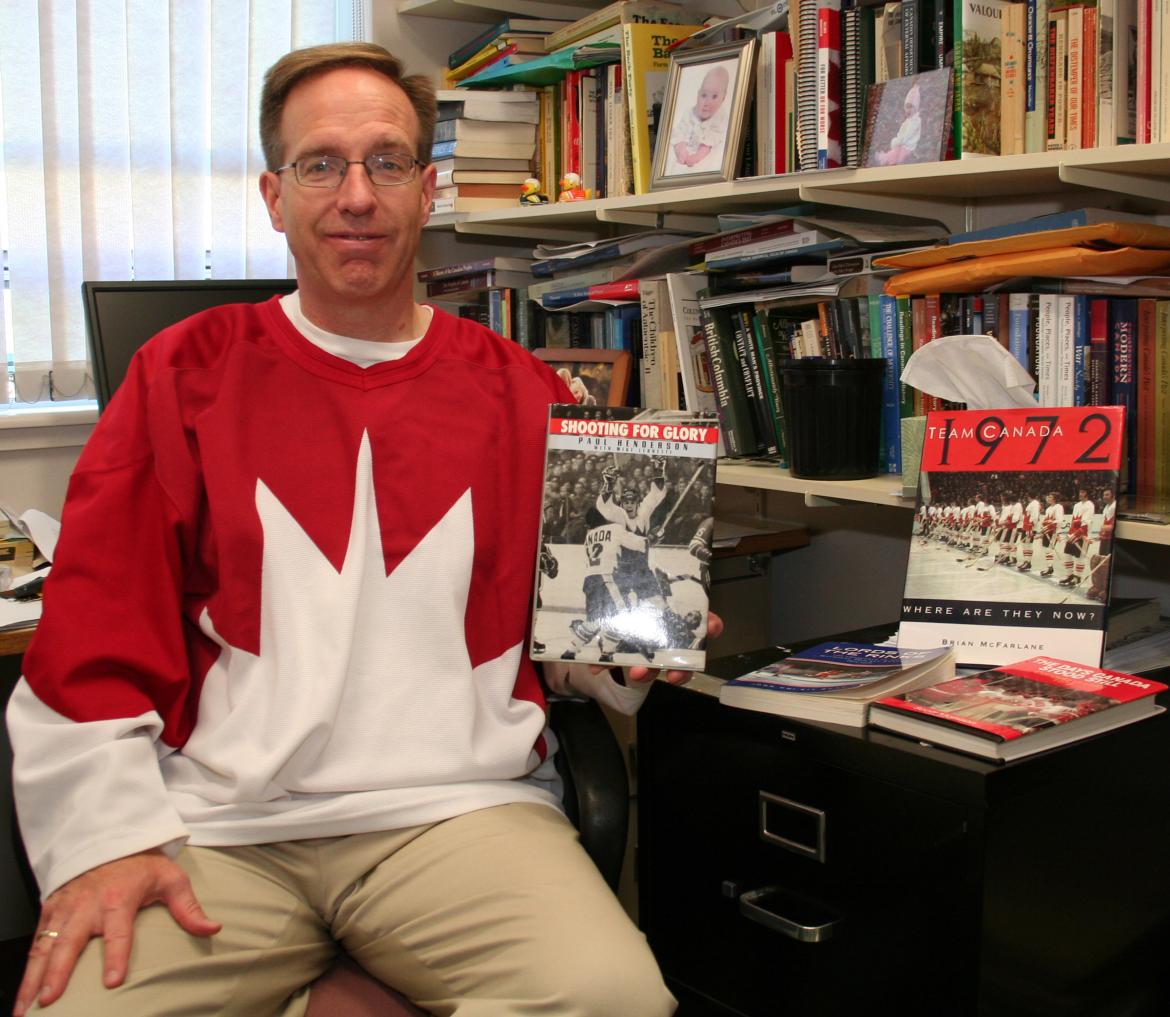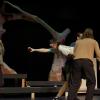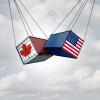
September 13, 2012 - 3:30am
“Cournoyer has it on that wing. Here’s a shot! Henderson makes a wild stab for it and falls. Here’s another shot. Right in front. They score! Henderson has scored for Canada!”
– Hockey broadcast legend Foster Hewitt, describing Paul Henderson’s historic goal against the Soviet Union in Moscow, Sept. 28, 1972
Forty years after Paul Henderson scored for Team Canada, his winning goal represents the most significant event in Canadian sports history and a landmark cultural moment, says Vancouver Island History Professor Dr. Timothy Lewis.
Lewis, who teaches two upper-level History courses centred on the theme of hockey and the Canadian identity, will outline how the 1972 Summit Series has come to acquire almost mythical status at a free public lecture at VIU on Friday, Sept. 21, from 10 to 11:30 am.
His presentation is the first of the Fall 2012 Arts and Humanities Colloquium presentations and will take place in VIU’s Malaspina Theatre (Building 310).
Many Canadians remember the high drama: More than 14,000 spectators, including Leonid Brezhnev, General Secretary of the Communist Party, were jammed into Moscow’s Luzhniki Palace of Sports to witness the eighth and deciding game of the Canada – Soviet Union Summit Series.
The score was tied at five. Less than one minute remained to be played.
“A goal by either side would bring bragging rights to world hockey supremacy,” Lewis says. “But just as importantly, it would provide a useful propaganda victory in the heart of the Cold War.”
“Sport played a crucial role in the Cold War,” says Lewis, and that added significant meaning to Team Canada’s victory. But the Cold War alone does not explain the Canadian fascination with the 1972 Summit Series.
“Hockey also has deep-rooted links to Canadian masculinity and expressions of nationalism,” says Lewis.
Combined with decades of Olympic and World Championship success in the first half of the 20th century, these factors helped to foster an unsurpassed emotional connection to the game.
“Being the best at hockey was, and is, a significant point of pride for many in this nation.”
This also helps to explain the outpouring of books, films, and websites dedicated to preserving the memories of Team Canada’s dramatic victory in 1972. As Lewis will note in his presentation, “Each generation attaches current meanings to the memories of past events. Henderson’s victory no longer belongs to him and the members of Team Canada ‘72, but to all of us, even those not born at the time. In our mythology, it was the Canadian nation that triumphed.”
Lewis’s presentation will be followed by discussion. Everyone is welcome to attend and join the conversation. Refreshments will be provided. There is no admission charge.
Now in its fourth year, the Arts and Humanities Colloquium series provides free lectures by VIU faculty members on topics of interest to the public.
“The Colloquium highlights scholarly and creative work done at VIU,” says Dr. Daniel Burgoyne, one of the Colloquium’s organizers. “We invite the VIU community and the community at large to explore with us the contributions the Arts and the Humanities make to the lives of Canadians and to our understanding of who we are.”
The Fall 2012 Arts and Humanities Colloquium series will continue on Oct.19 with a presentation by Media Studies faculty Robin Davies and Marian van der Zon, together with retired professor Dr. Marshall Soules, creator of VIU’s Media Studies program, and student participants, on “Lo-fi & Wi-fi: Conjuring Creativity and Performance.”
On Nov. 16, historian Dr. Stephen Davies, Director of the Canadian Letters and Images Project, will speak on “Voices Through Time: Letters of the Great War.”
- 30 -
For more information, contact:
Dr. Daniel Burgoyne
250-753-3245, local 2126
Daniel.Burgoyne@viu.ca
Tags: In the Community






